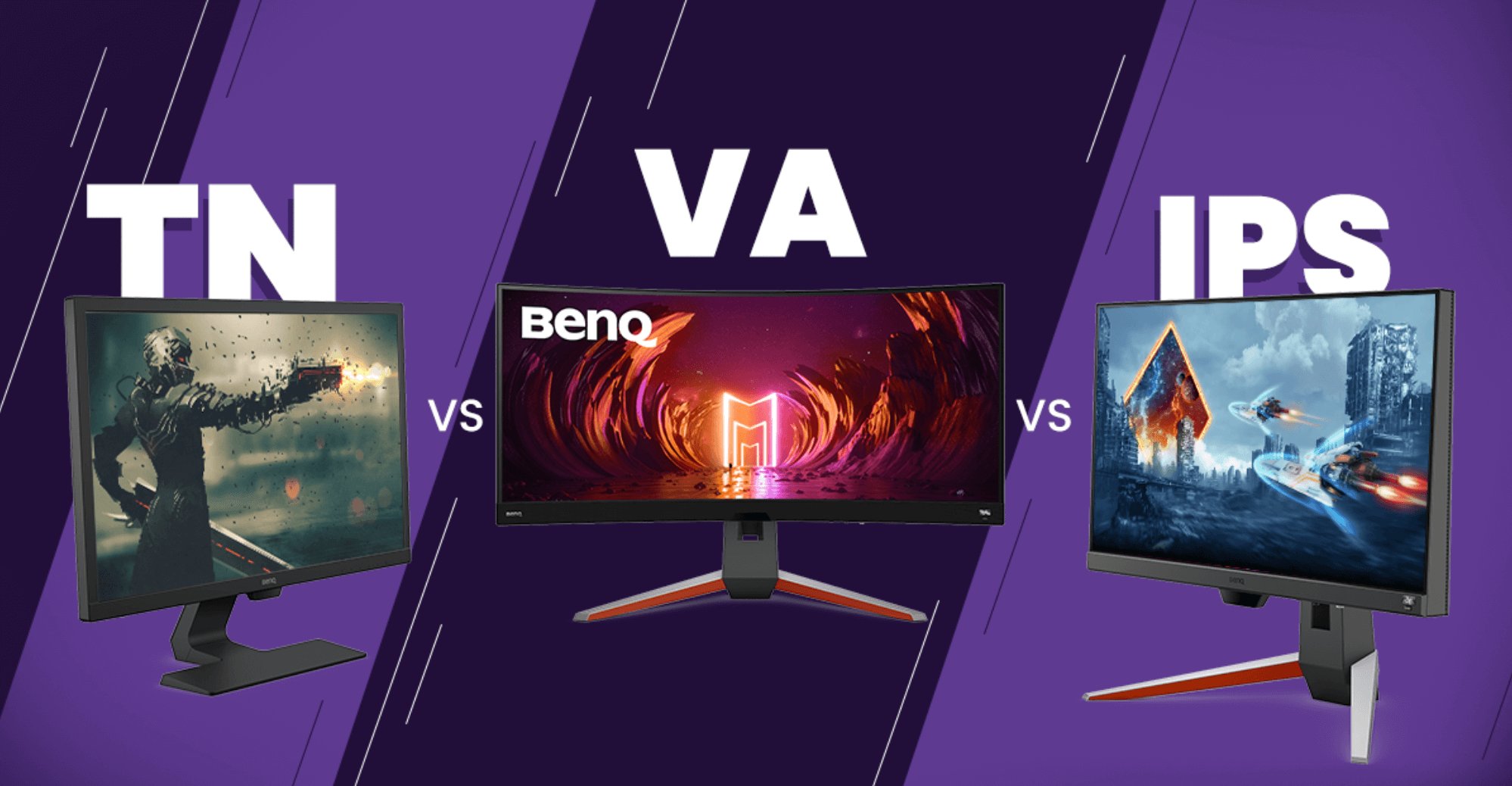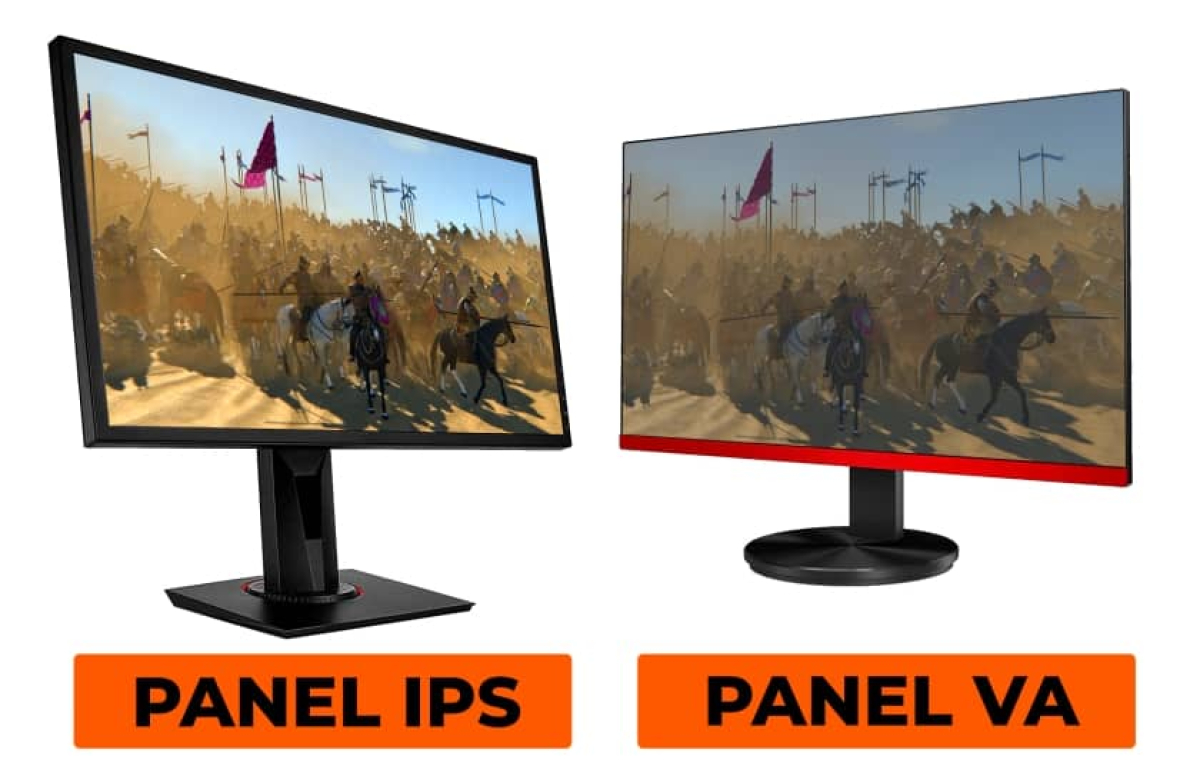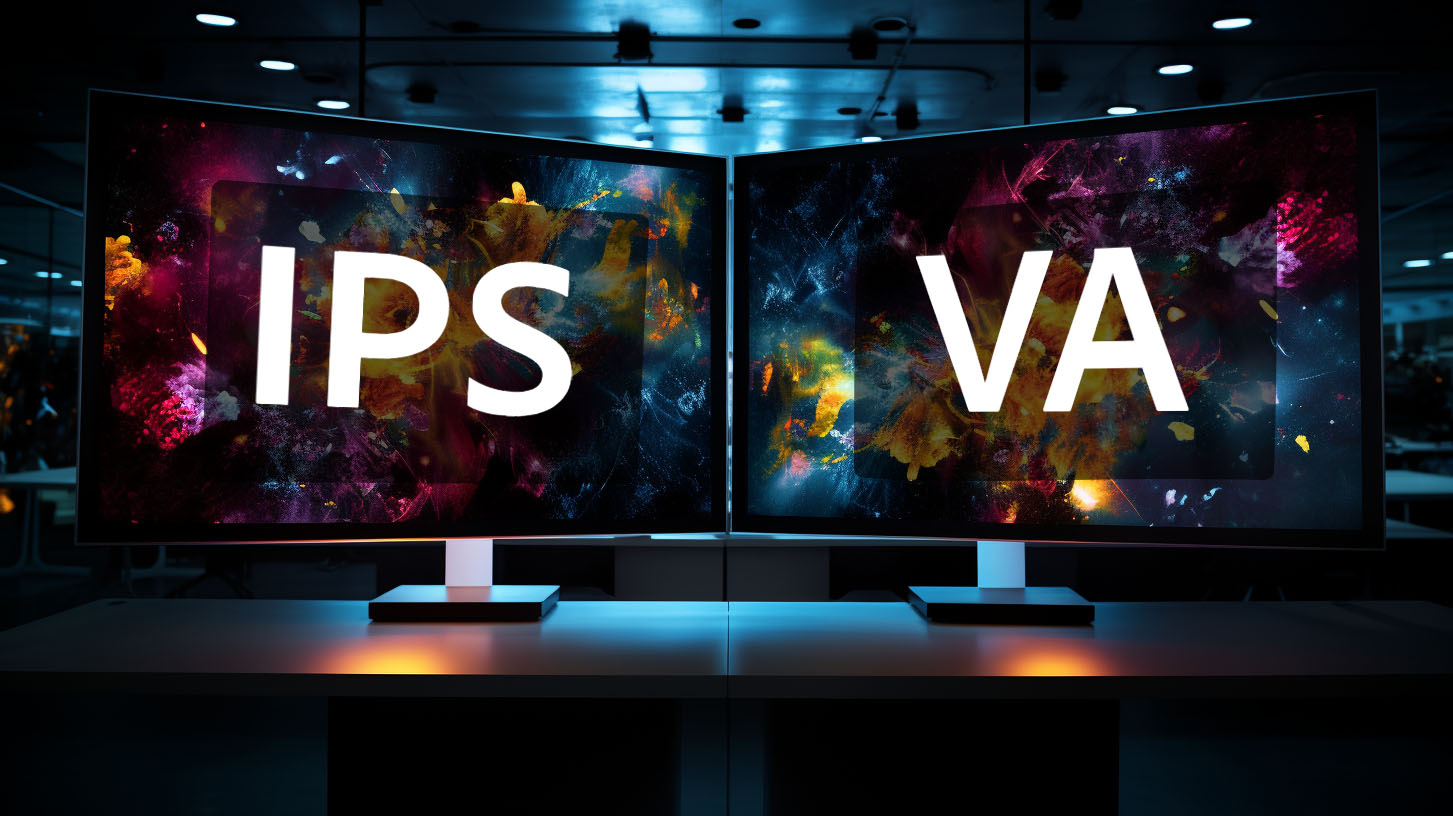Glory Info About Is IPS Better Than VA Panel

IPS And VA Display Panel Why You Absolutely Must Know How To Tell Them
The Big Display Dilemma
1. Decoding the Panel Puzzle
So, you're staring down the barrel of buying a new monitor or TV, and you're immediately bombarded with acronyms. IPS? VA? It's enough to make your head spin faster than a dial-up modem connecting to the internet. Relax! We're here to break it down without getting too technical. Think of this as a friendly chat about what those letters actually mean for your viewing experience.
At its core, the choice between an IPS (In-Plane Switching) and a VA (Vertical Alignment) panel boils down to a trade-off. There's no clear "winner," because each technology excels in different areas. It's like deciding whether you'd rather have a super-fast car that handles corners like a dream (IPS), or a comfortable cruiser that's perfect for long road trips (VA).
We're going to explore what makes each panel type tick. We'll look at color accuracy, viewing angles, contrast ratios, response times, and, most importantly, how these characteristics translate into real-world benefits for gamers, movie buffs, and everyday users. No more tech jargon overload, I promise! Lets see if IPS panel is better than VA panel.
Forget the marketing hype; let's focus on what truly matters: getting a display that looks fantastic and suits your specific needs. After all, a great display can make everything from browsing cat videos to conquering virtual worlds a whole lot more enjoyable.

Color Me Impressed
2. Seeing the World in its True Colors
Okay, lets get colorful. IPS panels are generally renowned for their superior color accuracy and wider viewing angles. What does this mean? Well, color accuracy simply implies how faithfully a monitor can reproduce colors as they are intended. If you're a photographer, graphic designer, or someone who simply appreciates vibrant and realistic visuals, IPS tends to be the way to go. They're just more reliable in showing colors as they should be.
Think of it this way: Imagine trying to paint a picture, but your palette is slightly off. The colors will be close, but not quite right. IPS panels give you the most accurate palette possible. On the other hand, VA panels have made strides in color accuracy, but they still often trail behind IPS in some tests, especially when it comes to more nuanced color reproduction.
Then there's the viewing angle — this is where IPS panels really shine. With an IPS display, you can view the screen from almost any angle without significant color shifting or loss of brightness. If you regularly share your screen with others or have a wide seating arrangement, this advantage is invaluable. No more fighting over the "sweet spot" in front of the TV!
VA panels, conversely, can experience some color shifting when viewed from more extreme angles. It's not always a deal-breaker, but it's something to keep in mind if viewing angle is a priority for you. So, in this round of the battle of IPS better than VA panel, IPS is leading.

VA Vs IPS TN Which Panel Is Best For Gaming? BenQ US, 51 OFF
Contrast and Darkness
3. Diving into the Darker Side
Heres where VA panels get to flex their muscles. Contrast ratio is the measurement of the difference between the brightest white a display can produce and the darkest black. VA panels typically have significantly higher contrast ratios than IPS panels. This translates to deeper blacks, brighter whites, and an overall more dynamic and immersive image, which is really a strong argument that IPS panel is better than VA panel.
Imagine watching a movie with lots of dark scenes on a display with a poor contrast ratio. The blacks will look grayish, washing out the details and making the image appear flat. With a VA panel, those blacks will be much deeper and richer, making the shadows more realistic and enhancing the overall viewing experience. This is particularly noticeable when watching movies, playing games with dark environments, or simply browsing content with dark themes.
IPS panels, while excellent in other areas, often struggle to achieve the same level of contrast as VA panels. Their blacks tend to be lighter, which can make the image appear less vibrant and less impactful. This isn't to say that IPS displays have bad contrast, but VA panels definitely have an edge in this department.
So, if you're a stickler for deep blacks and a dramatic contrast, a VA panel might be the better choice for you. Think about those intense space battles or gripping thriller scenes — they'll look much more impressive on a VA display.

Gaming Showdown
4. Are You Ready to Play?
Alright, gamers, listen up! When it comes to gaming, response time and refresh rate are crucial factors. Response time refers to how quickly a pixel can change color, while refresh rate indicates how many times per second the display updates the image. Lower response times and higher refresh rates generally lead to smoother, more responsive gameplay with less motion blur and ghosting.
Historically, IPS panels had a reputation for slower response times compared to VA panels. This meant that fast-paced games could suffer from noticeable motion blur, which could negatively impact your performance. However, IPS technology has made significant strides in recent years, and many modern IPS gaming monitors now boast response times that rival or even surpass those of VA panels.
VA panels, on the other hand, have traditionally offered faster response times, making them a popular choice for gamers. However, some VA panels can exhibit a phenomenon called "black smearing," where dark objects leave a noticeable trail behind them when moving quickly. This can be distracting and can impact the overall gaming experience.
Ultimately, the best choice for gaming depends on the specific monitor and your individual preferences. Look for monitors with low response times (4ms or lower is ideal) and high refresh rates (144Hz or higher is recommended). Read reviews and compare specs to find a display that strikes the right balance between response time, refresh rate, and image quality for your needs.

Making the Right Choice
5. Finding Your Perfect Panel Partner
Okay, we've covered a lot of ground. But the million-dollar question remains: which panel type is right for you? The answer, as always, is "it depends!" Consider your primary use case. Are you a creative professional who needs accurate colors? Go for IPS. Are you a movie buff who loves deep blacks and high contrast? VA might be your better bet. Are you a hardcore gamer? Look for a monitor that balances response time, refresh rate, and image quality regardless of the panel type.
Think about your budget. Generally, IPS panels tend to be slightly more expensive than VA panels, especially when comparing similar features and specifications. However, prices fluctuate, so it's always worth doing your research and comparing different models. Don't assume that the most expensive monitor is automatically the best choice for you. In the debate of IPS better than VA panel, there is no right or wrong answer.
Don't be afraid to visit a local electronics store and see the displays in person. Viewing a monitor with your own eyes can often reveal differences that you wouldn't notice from reading specifications alone. Pay attention to color accuracy, contrast, viewing angles, and overall image quality. Trust your instincts!
Finally, remember that technology is constantly evolving. New and improved panels are being released all the time, so stay informed and do your research before making a purchase. With a little bit of knowledge and a bit of careful consideration, you can find the perfect display to elevate your viewing experience.
